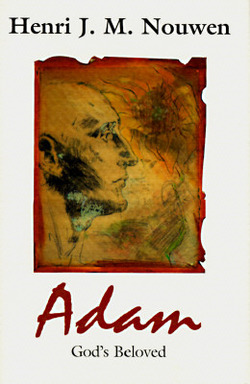
In Adam, Nouwen confronts this interweaving of the simple and the profound in the most deeply personal way possible. At first glance, the book appears to be a biography of Adam Arnett, a seriously handicapped young man, narrated by Nouwen who became his caretaker in Daybreak, the L’Arche community home in Richmond Hill, just north of Toronto, Canada. Yet, as the reader turns the pages of the text, the biography becomes an autobiography at the same time. Indeed, Nouwen’s telling of Adam’s story morphs into the parallel story of Nouwen’s life during his time with Adam and afterward.
Nouwen writes soon after Adam’s death and, as we learn, during what was to be the last year of his own life. Nouwen was convinced that Adam’s person and life was an incarnation of the person of Jesus Christ. This faith-conviction motivates Nouwen to share his incarnational insight through his gift of writing. Nouwen’s prayerful reflections led him to see a paralleling of many of the aspects of the life-story of Adam with that of Jesus as described for us in the four Gospels. What Nouwen composes for his readers is, on one level, this parallel. For Nouwen, Adam’s life had a hidden period, public period, passion, death, burial, and form of resurrection. This comparing of Adam’s life-story to that of Jesus provides the structure for the text.
Woven into Adam’s story is Nouwen’s own story at that moment in his life. In some respects, Nouwen’s life-story reverses Adam’s and Jesus’. Nouwen lived a very public life as teacher, lecturer, and writer for most of his career. Now, in what were to become the last two years of his life, he experiences a much more hidden life as pastor of Daybreak.
During this hidden life, even the renowned spiritual master encounters himself and Jesus in new, surprising, and challenging ways. In his role as caregiver to Adam, Nouwen experiences the depth of human fragility, vulnerability and dignity. The normally fluent speaker and writer is so challenged that his usual insightful, confident speech about the spiritual life is reduced to a simple recounting of experiences and reflections on how they connect to the life of Jesus. Nouwen writes almost as a student or novice encountering new spiritual realities for the first time.
Adam does show us Nouwen at his best -- as a human being. Here we see a Nouwen who is faced with his own vulnerability as a human being and disciple of Jesus Christ. He writes, haltingly at times and repetitively at others, of his ongoing discovery of his own vulnerability and neediness. Here is Nouwen without the defenses of his brilliant intellect and polished literary skills. Here, indeed, is Nouwen a “wounded healer” himself. Ironically, it is Adam, also a wounded healer, who becomes Nouwen’s spiritual guide. It is Adam who, through his own unchosen vulnerability, becomes the inspiration for Nouwen to touch the depths of his own vulnerabilities.
Nouwen recounts how this process led him into his own personal crisis. He puts it this way: “I was going through the deep human struggle to believe in my belovedness even when I had nothing to be proud of.” (79) Coming through his crisis, Nouwen states that: “Somewhere though I recognized that Adam’s way, the way of radical vulnerability, was also the way of Jesus.” (79) This, I believe, is Nouwen’s great, perhaps greatest, discovery of his own personal spiritual life. It is this autobiographical truth that is Nouwen’s “pearl of great price.” It is this that he wishes to share with any and all who would read his book. And, I don’t believe Nouwen would care if readers and reviewers said that this wasn’t his best work. I suspect that Nouwen was quite at peace during his dying because he had come to know the truth about himself in a way that he had never known before: that like Jesus and like Adam Arnett, he too, Henri Nouwen, was God’s Beloved. Nothing else really matters.
- Dr.George Matejka, Chair, Philosophy Department, Ursuline College, Pepper Pike, OH wrote this book review -
 RSS Feed
RSS Feed